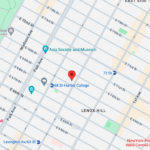Many adults suffer from a pinched nerve in the neck or back, but there are many remedies for stopping the pain.
The American Association of Neurological Surgeons estimates that between 75% and 85% of U.S. adults experience back pain at some point during their lifetimes. The pain typically radiates in the lower spine or the neck. In many cases, the pain can be traced to a pinched nerve or cervical radiculopathy. According to one study, 85 out of 100,000 U.S. adults develop the painful condition every year.
Fortunately, a pinched nerve in the back responds quickly and effectively with at-home remedies — but you have to know whether or not you have a pinched nerve before treatment can begin. Here are the telltale signs of a pinched nerve and what you can do to bring relief.
Signs you may have a pinched nerve in the back
Bone and cartilage surround the nerves in your neck and spine, acting like a protective layer of tissue. When the bone and cartilage weaken or are damaged due to a herniated disc, an injury, or an underlying condition like rheumatoid arthritis, the nerve becomes compressed or pinched, leading to pain and other symptoms. Pinched nerves in the back are more common among older people and those who work in jobs requiring repetitive tasks that strain the back or neck. Diabetes is another risk factor.
While pain in the neck or lower back is the leading indicator of a pinched nerve, the condition differs from a mere muscle ache in that it also causes numbness and a feeling of weakness in the arms, hands, or legs. The sensation of pins and needles is also common.
To diagnose a pinched nerve, your doctor may order imaging tests, such as an MRI or X-ray, or conduct nerve conduction tests to measure the strength of nerve impulses.
Six ways to treat a pinched nerve
Minor pain from a pinched nerve in the back usually resolves in a few days or weeks with at-home therapies. If the pain lasts longer than that, see an orthopedist for further testing and treatment.
If you suspect that you may have a pinched nerve, you can try these at-home methods:
Rest. Stop whatever you’re doing that’s causing the pain and rest for a few days. Rest also means getting enough sleep to help the nerves heal.
Stretch. Stretching exercises can help reduce the pain, but be careful not to overdo it. Only stretch as far as you feel comfortable. If the pain centers in the neck, try a shoulder roll: Lift your shoulder blades up, backward, and down. Then, roll the shoulders forward and down. Do each movement six times.
Take pain medications. Over-the-counter nonsteroidal anti-inflammatory medications such as ibuprofen (Advil, Motrin IB) or naproxen sodium (Aleve) can relieve the pain. For severe pain, your doctor may prescribe corticosteroids either orally or by injection.
Change your posture. How you sit, stand, and even sleep could be compressing the nerve, so pay attention to your posture. Slouching at your desk may be the culprit. To relieve a pinched nerve in the neck or lower back, sleep in the fetal position or bend your neck or lower back away from the painful area.
Adjust your workstation. Take a look at your workstation. Is it an ergonomic workstation — one that has a positive impact on your neck and spine? Or is it causing you more discomfort? If the latter, find a chair that keeps your spine in a neutral or “S” curve by supporting your lower back. A standing desk or one that allows you to switch between sitting and standing may also be a better option for you. Also, try to position your computer so your eyes aren’t looking down, but straight up at the screen.
Do ice/hot therapy. Ice the painful area to reduce inflammation and pain. Heat can loosen tight muscles and encourage blood flow to the area. However, be sure to only do ice and heat therapy for 15 to 20 minutes at a time, and always cover hot or cold compresses with a towel or rag to protect the skin.
If the pain persists, see an orthopedist. They may recommend physical therapy, wearing a neck brace, or other assistive devices. Surgery to replace the damaged disc or relieve the pressure on the pinched nerve is rarely performed and is only done if other conservative methods fail.
Alleviate your back pain
As a leading center for sports medicine, New York Bone & Joint Specialists has treated many types of neck and back pain, including those caused by a pinched nerve. Our doctors will diagnose the cause of your pain and develop a treatment plan just for you. Contact us today for a consultation.




